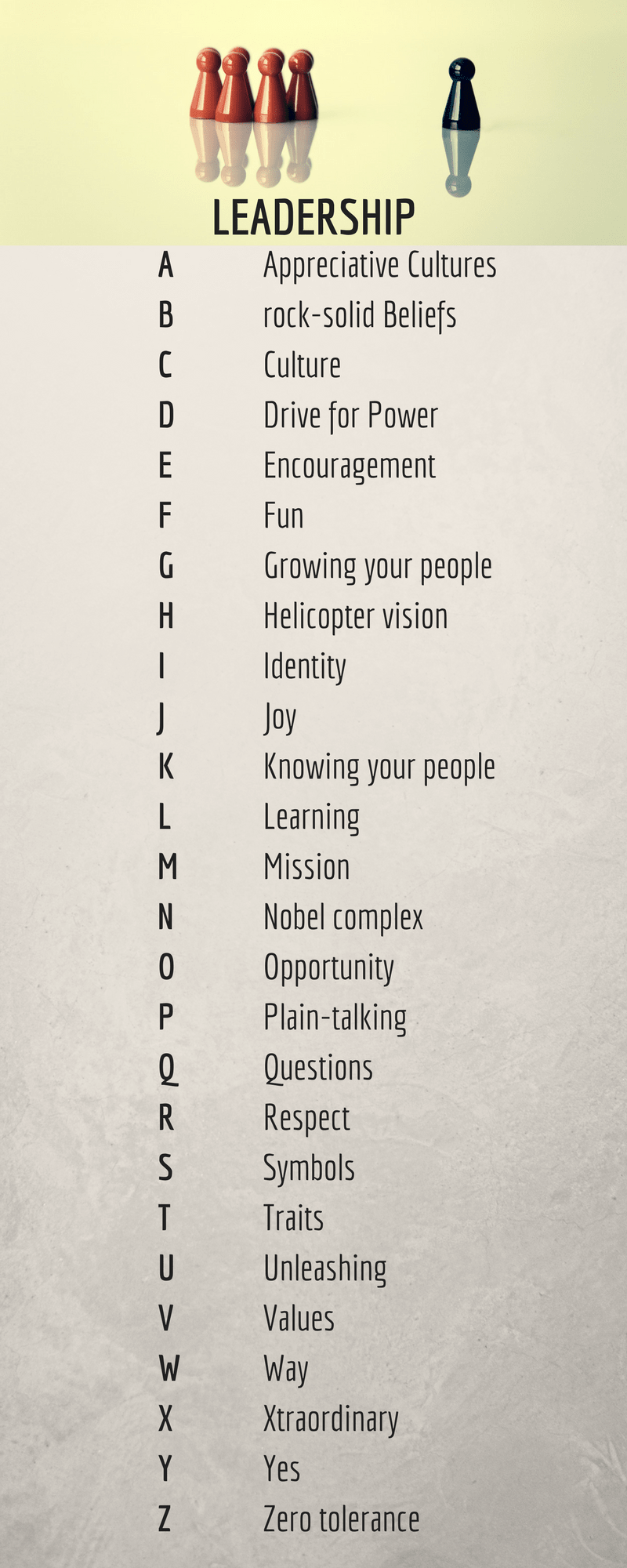
by Karen Petrauskas | Apr 17, 2018
There are many things you can do within your business to get someone’s attention but to keep their attention and to build relationships means taking a further step. Building a business and to engage with customers online requires a trust and dedication, hard work and empathy. You need to understand your customer and take note of what it is they are looking for. From that point on you will be able to provide solutions and offer services that will be tailored to them.
All this is wrapped up in ‘giving value’.
Giving value to a customer is vital to retention and success rates.
“Knowledge is of no value unless you put it into practice.” ~ Anton Chekhov
When you have a clear vision of what you want to achieve and you have put plans in place for the steps of how you’re going to achieve it, then you will see the fruits of your work.
There are many ways in giving value in your business. If you’re unsure of how to go about it, take a step back to outline what it is you are really doing within your business and what your ultimate goals are. If you can put these down on paper, you can then start to look at how the people around you – your customers, your colleagues – will be impacted by what you do. What can you do that will make them feel valued?
Understand your customer
Connection with a customer and getting to know their needs, what they are searching for, will build trust in your relationship. If you go about it the right way, a customer will confide in you and tell you everything. Once you understand them and they know that you are really interested in what they need, they will come back to you each time. Providing value comes in many forms but understanding boosts value.
Offer quality
Again, there are many things you can do to gain the attention of a potential customer but someone that goes above and beyond and provides quality rather than quantity will see better results. If you know what other’s are offering in your niche, go a step further and provide more. Show that you care about the outcome and that you want to build a lasting customer relationship that means as much to you as it does to them.
Believe that you can
Believe in what you are offering, know that you if you have a product or service that is yours – own it! Believe that your product is the best and that people do want to buy from you. If you doubt in yourself, then this will come across in your business. Be confident and know that you can add value to someone else.
Make it personal
Depending on what type of business you are running, providing a personal touch can often go a long way. A quick email to see how someone is getting on or a social media post congratulating a new customer can be valued dearly. People appreciate thought and when you go above and beyond to show that their customer journey is valuable to you, they know that they are in good hands.
Your customers are the lifeblood of your business and without them, you wouldn’t have a business. Therefore do what you can to add value wherever you can and believe in yourself.
Here at KJP Creative we offer 1-2-1 coaching services for those people who are just starting out in business and require a little nudge in building confidence and knowing how to build their online presence. If you’d like to know more, please get in touch!
by Karen Petrauskas | Mar 28, 2018
When you’re starting out in business and you’re looking for an extra pair of hands to help you, it’s often hard to find the right balance in what you need to suit your circumstances.
If the big clients haven’t started rolling in yet, or you’re not quite ready to take the big step in hiring a full time employee, knowing what to do to ease the work load and make life practical for you can be a tricky decision.
There are options out there though and if you’re not in a position to hire an employee, you could consider hiring a freelance worker instead.
Both has it’s pros and cons and both are valuable considerations – it all comes down to what your business needs right now.
In our previous post we go in more depth about the differences between hiring a freelancer or an employee. At the end of the day, as a startup business you need to think about what is best for you both personally and financially. Small businesses will see success if they plan carefully and productively.
If you’re looking to hire a Virtual Assistant for your business and would like to know more about how this could benefit your business, get in touch for an initial consultation.

by Karen Petrauskas | Mar 21, 2018
GDPR is a new legislation that will come into force by the Information Commissioner’s Office (ICO) as of 25th May 2018 to protect the personal data and privacy of EU citizens. Companies that collect data on any citizen within the European Union (EU) will need to comply with the rules.
The EU General Data Protection Regulation (GDPR) is the most important change in data privacy regulation in 20 years and it replaces the current Data Protection Act 1998 that is in place.
GDPR does not only affect organisations located within the EU but will apply to all organisations outside of the EU that have business connections and behaviour associated with people or organisation with the EU. It applies to all companies that process or hold data or any individual or personal data that resides from the European Union, regardless of the company’s location.
What is personal data?
This relates to any personal data that belongs to or is related to an actual person that can be used to identify that person, whether that be directly or indirectly. This can be anything from a photo, bank details, an email address, telephone number, medical information or a computer IP address.
What are the penalties?
The fines associated with GDPR non-compliance are steep and not a route any business would like to go down. Being compliant before the deadline of 25th May 2018 is necessary to steer clear of these penalties. Any organisation that is in breach of GDPR rules can be fined up to 4% of their annual turnover or €20m – whichever is greater. This is the maximum amount that can be imposed after a serious breach and there is a tiered approach that will be effective however it is worth noting that any organisation can be fined 2% for not having their records in order.
Penalties will be enforced for the following:
- Processing an individual’s data in an incorrect manner
- An organisation not having a data protections officer in place
- Having a security breach.
In order to stay compliant, any organisation must be able to show proof that consent of personal data has been given. This will apply to opt-in forms on websites, for example which will take away the use of pre-checked consent boxes when filling in personal data within marketing material. The individual needs to be given an opportunity to withdraw or opt out at any time.
A company will also need to inform the person what they intend to do with the data and where it is being stored and for what purpose, including indicating a retention period if applicable to the nature of the business.
An individual can report an organisation to the ICO if they suspect there is a problem with the way their data is being handled.
When an individual requests access to their personal data that is being held, an organisation must provide that data within a reasonable timescale.
Make the changes now
As the deadline fast approaches it is important that processes are put into place to accommodate these changes. The changes apply to all business whether big or small and therefore if you are a small business collecting data from your signup forms on your website, this will be a process that you need to manage well to be compliant.
Being clear, honest and open with any person that you come in contact with, and providing details of why you are collecting their data and what you intend to do with it will help streamline the process and put procedures into place for your business.
Working with a number of clients in a marketing capacity here at KJP Creative, we are very aware of the implications that are involved. We ensure complete transparency in all that we do and would in no way misuse any data that we come into contact with.
If you’re looking for advice on the subject with regards to your own business, please feel free to get in touch.

by Karen Petrauskas | Mar 16, 2018
We all have our own approach in how we view or look at leadership and what makes a leader. It can depend on your environment, the type of industry you are in or even your own personal life. But what makes a great leader is the attitude to see results and lead by example as well as getting the job done.
“As we look ahead into the next century, leaders will be those who empower others.” – Bill Gates
So what makes a great leader?
We must believe in what we are doing and have faith that are able to achieve it. This does not necessarily mean that you’re going to do all the work, but you learn to delegate or lead by example in order for a task to be complete.
A leader is used to make hard choices and to take the initiative to say yes, or no, to a problem or solution. It’s very easy to get swept along with the tide in busy business environments or to get into a routine that doesn’t allow for improvement. However leadership really is a mindset that is in action. A leader doesn’t need a title, they believe in what they are doing and they act on that, taking initiative to see something through to completion. The title is not given, it’s earned.
“The only definition of a leader is someone who has followers.” – Peter Drucker
If you want to make the move from managing to leading, from being a professional to being an inspirer, from being one of the team to being a leader of the team, you need to know the ABC of Superlative Leadership.
Take a read of the Leadership ABC’s:

Let’s take a look at these in more details:
A is for Appreciative Cultures, the end result of a leader’s work, when the culture he or she fosters becomes an appreciative value of the company.
B is for rock-solid Belief that your team can move mountains.
C is for Culture, which is the way people behave when you’re not looking.
D is for the Drive for Power that makes you want to lead.
E is for Encouragement, like sun after the rain.
F is for Fun, an indication that the right work is happening.
G is for Growing your people and believing that they can achieve their goals. Putting them first.
H is for Helicopter vision, because you need to see in three time zones: the near, the middle and the far.
I is for leader Identity, the ability to be comfortable in your own shoes.
J is for Joy because leaders rejoice in their own blessings as well as the successes of their team.
K is for Knowing your people, not just by name and number, but by strength and weakness, character and spirit, skills and potential, what makes them sigh and what makes them soar.
L is for Learning, because learning is change and learning is growth.
M is for Mission which leaders live as well as dream and portray.
N is for the Nobel complex, the belief that everything your people do is worthy of a Nobel prize.
O is for Opportunity. Take hold of everything you can in order to see results.
P is for Plain-talking because leaders need to be understood.
Q is for Questions, such as “What do you need me to do?” and “How can I help you work better?” and “What should I be doing?”
R is for Respect, the touchstone of every relationship a leader has.
S is for Symbols, the language of leadership.
T is for the Traits of courage and determination, patience and perseverance.
U is for Unleashing what’s there, allowing team members to express themselves and explore new ideas.
V is for Values, the guiding principles of the team, or “the Walkmans of the mind”.
W is for the Way, the Chinese “tao”, the route that leaders take and others follow.
X is for Xtraordinary because leaders get ordinary people to do extraordinary things.
Y is for Yes, because there is always a plus to be found even in the worst situation and the toughest setback.
Z is for Zero tolerance of failure, sub-performance and giving up.
Learn these simple principles and there are no limits to where you can lead your team.
Can you add to these points? Do you have your own A,B,C of leadership that you apply to your way of working? Please comment below and share.

by Karen Petrauskas | Feb 14, 2018
Let’s face it, many people just seem to have difficulty in saying “no” or denying a favour asked of them. It’s a lot easier and less confrontational to say “yes” and to take on a task to keep the peace. As a result, people often find themselves trapped in the middle of nowhere because of their own rushed decision or acceptance of a job – just because they were afraid to say “no.”
Are you someone that is faced with this problem? If so, here’s 5 tips of advice to help you learn to say “no”.
1) If it doesn’t concern you – don’t worry about it.
How many times do you get drawn into a situation to try and sort it out – just because you’re there at the right time? It doesn’t really concern you and the outcome will not have any benefit to you – so do you really need to waste time getting involved?
Many people get pleasure out of intervening in other people’s business. And yes, many people have the ‘kind nature’ to do so. This is not wrong, just be aware of the implications to getting side-tracked and involved in something that doesn’t concern you. If you’re always struggling for time – use your time wisely and whatever you do, make sure you can make a positive impact.
2) Your time is precious – is the task worth your time?
We all have the same amount of time in a day but so often we ‘run of out time’ as life gets so busy and hectic. Be aware of what you are using your time for and prioritise on your tasks.
If it’s not worth your time – don’t do it!
3) If it’s not part of your natural skillset – you can say no.
We are a people that like to please and sometimes this can come at an expense of either not doing something well (which can result in reputation downfall) or feeling uncomfortable doing it. You know your capabilities and what you are able of achieving, you also know the timeframes you have around your working and personal life. If someone asks you to do a task that you’re not comfortable with or doesn’t feel natural to you – decline the tasks.
Taking on tasks that our out of our comfort zones can have a positive effect if we really want to achieve them but it can also have a damaging effect if it comes with stress and takes away time from what we should be focusing on.
4) Don’t rush – do a job properly and well.
We all have our own working patterns and timeframes of doing tasks. Some people are quicker than others, that’s just a fact of life. When you accept a job, make sure you have the knowledge and means to be able to do it well. Reputation can come down as quickly as it goes up. Be careful!
Word of mouth is a great form of advertising but if you’ve managed a task badly, this may have a negative effect on your business.
5) Give yourself permission to say no.
Our hearts sink when we’re asked to do ‘that’ task but we know that it’s so much easier and less hassle for everyone if you just get on and do it. Keep quiet, keep your head down and you’ll get the task done when you’ve stopped stressing about it! We are good at saying ‘yes’ because it’s the easiest thing to do, to keep everyone happy but is it producing the best results for you? Never saying no can have a negative affect on your life, always being the person that will do the favour for someone – but does this make you happy? Friends don’t keep score, if you say no -they’ll understand. Give yourself more time to make a decision, allow yourself to say no if it’s going to produce the best outcome.
You don’t need to feel guilty for saying no, there is courage in believing in yourself and standing up for what you want to do. Whatever you decide on, always keep in mind that there is nothing wrong in saying “no.” When in doubt, it may even be the best thing to do.
Becoming assertive and learning to discern and say no to people will build your confidence and will give you a better understanding of who you are what you are really capable of. You have so much to offer, you are a person of value and when you realise what you can and can’t do – and stick to it – you’ll be much happier and content in life.
You can apply these points in both work and personal life. If you’re starting out in business and have a lot to take on with many responsibilities, you need to think about your well-being and how to spread your time efficiently. Allowing your gut feeling to take a lead is often the best way to know if something is right. Be confident. Be effective. Be the person you want to be.






